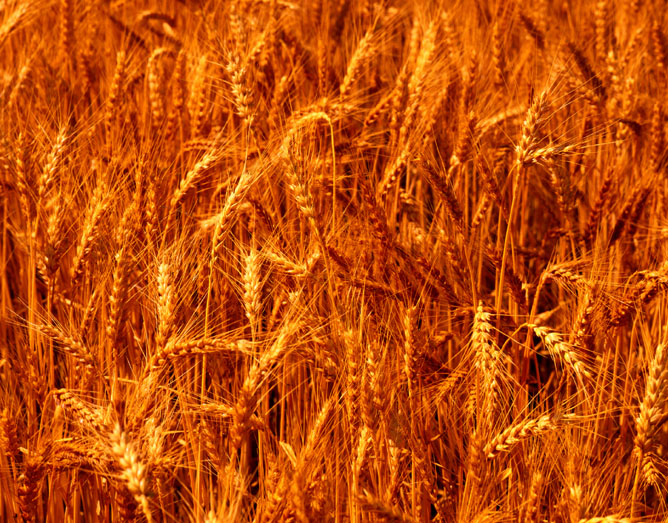New England Wheat Growers | Shops and Recipes
Someone from, say, Kansas might laugh at the notion, but there was a time when Vermont merited the nickname “breadbasket of America.” During the 19th century, farms around New England devoted significant acreage to wheat; in the 1850s, Vermont alone boasted about 40,000 acres of wheat-growing land. However, as transporting grain from the Midwest became […]

Coffee By Design | Portland, Maine
Photo Credit : Katherine KeenanSomeone from, say, Kansas might laugh at the notion, but there was a time when Vermont merited the nickname “breadbasket of America.” During the 19th century, farms around New England devoted significant acreage to wheat; in the 1850s, Vermont alone boasted about 40,000 acres of wheat-growing land.
However, as transporting grain from the Midwest became more affordable and practical, New England wheat production declined rapidly, almost to the point of nonexistence. Slowly but steadily, however, a new regional trend aims to reverse that loss.Today, New England’s homegrown grains are making waves again. Rising prices and demand from locavores–folks who want to eat all local, all the time–have prompted ambitious New England farmers to grow wheat again. More than 500 acres in Vermont and 1,000 acres in Maine, plus a handful elsewhere in the area, are sprouting this nutritious grass.
In Massachusetts, the owners of Northampton’s Hungry Ghost Bread are encouraging grassroots (literally) wheat-growing efforts by distributing wheatberries–hulled whole kernels–to customers for home planting.Growing wheat in New England is tricky thanks to the hilly landscape, rocky soil, and especially our variable weather (humidity can wreak havoc). And harvesting this grain is no picnic for small-scale farms. Combines are expensive, leaving many farmers to do it the old-fashioned way, with older, inefficient equipment or by hand.
Right now, only a few local operations have the facilities to store wheat and mill it into its most commercially viable forms, such as flour. As the wheat market expands, though, more resources are becoming available.Like other local crops, New England’s wheat, when grown successfully, offers the benefit of interesting flavors and hearty textures that no factory-farm product can match.
New England Wheat Producers
Here’s a sampling of producers around the region that are growing, distributing, or baking with New England wheat.Aurora Mills, Linneus, ME. 207-521-0094; mofga.org
Borealis Breads Bistro & Bakery, Portland, ME. 207-541-9600; borealisbreads.com, Wells, ME. 207-641-8800
Bread Euphoria, Haydenville, MA. 413-268-7757; breadeuphoria.org
Butterworks Farm, Westfield, VT. 802-744-6855; butterworksfarm.com
Crown o’ Maine Organic Cooperative, Gardiner, ME. 207-316-5321; crownofmainecoop.com
The Farmers Diner, Quechee, VT. 802-295-4600; farmersdiner.com. Middlebury, VT. 802-458-0455; farmersdiner.com
Gleason Grains, Bridport, VT. 802-758-2476; vermontfresh.net
Hungry Ghost Bread, Northampton, MA. 413-582-9009; hungryghostbread.com
Naga Bakehouse, Middletown Springs, VT. 802-235-1282; vermontfresh.net
Red Hen Baking Co., Middlesex, VT. 802-223-5200; redhenbaking.com
Upinngil Farm, Gill, MA. 413-863-2297; upinngil.com
Wheatberry Bakery & Cafe, Amherst, MA. 413-253-4290; pvlocalfirst.org








Aurora Farm and its retail company, Nitty Gritty Grain Co. of Vermont 4458 Lake Rd. Charlotte, Vermont also grows and distributes certified organic hard red winter wheat berries and VT White All-Purpose Unbleached Flour from that wheat, certified organic soft white winter wheat berries and VT Pastry Flour from those berries. Further, we sell Certified Organic Cornmeals and Cornmeal Baking Mixes. If anyone updates this article or writes a new one, could we please be added to your list? Thank you so much.
Catherine Kenyon
Nitty Gritty Grain Co. of Vermont